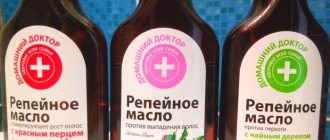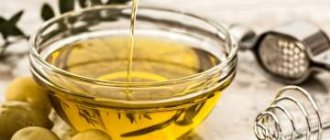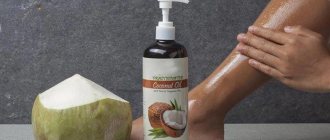© Dusan Zidar — stock.adobe.com
Share:
Olive oil is an indispensable product in the diet of those who follow a healthy diet. In addition, the oil has been used by women for cosmetic purposes since ancient times to give the skin freshness, softness and elasticity. Using the product, you can lose weight and fill your body with energy after a hard physical workout, which is especially valuable for athletes. Olive oil is deservedly considered a universal and healthy product due to its composition, rich in fatty acids, trace elements and vitamins.
However, in order to achieve the desired result, you need to know what kind of oil you are buying - refined or unrefined, what both are used for, how to properly store the product and for whom olive oil is strictly contraindicated. Read about all this in our article.
Calorie content of olive oil and chemical composition
The calorie content of olive oil per 100 g is 897.8 kcal, and the chemical composition is rich in fatty acids and has an extensive list of beneficial effects on the human body.
Chemical composition of unrefined oil per 100 g in table form:
| Item name | Quantitative indicator |
| Omega-6, g | 11,8 |
| Oleic, g | 63,8 |
| Palmitoleic, g | 1,61 |
| Palmitic, g | 12,8 |
| Arachidonic, g | 0,79 |
| Stearic, g | 2,8 |
| Iron, mg | 0,5 |
| Choline, mg | 0,4 |
| Vitamin E, mg | 12,3 |
| Vitamin K, mg | 0,07 |
| Phosphorus, mg | 2,1 |
| Potassium, mg | 1,1 |
| Sodium, mg | 1,9 |
| Calcium, mg | 1,2 |
| Beta Sitosterol, mg | 99,8 |
| Linoleic, g | 12,1 |
| Omega-9, g | 0,6 |
During processing, olive oil wastes a large number of beneficial elements, so for cosmetic or medicinal purposes it is best to use unrefined oil.
Nutritional value of olive oil per 100 g:
- carbohydrates – 0 g;
- fats – 98.9 g;
- proteins – 0 g;
- dietary fiber – 0 g;
- water – 1.1 g.
The BZHU ratio is 0/1/0, respectively. The calorie content of 1 tablespoon of oil is 152.6 kcal, in 1 teaspoon - 44.8 kcal.
Composition, benefits
Olive oil consists exclusively of fats (BJU per 100 grams - 0.0 g/99.9 g/0.0 g). It is very useful due to easily digestible monounsaturated fatty acids (in particular, oleic acid), which directly affect the reduction of cholesterol levels in the body, strengthen and make the walls of blood vessels elastic.
Olive oil contains vitamins K, D, E, A, B3, and is also rich in calcium, sodium, magnesium, phosphorus and other trace elements.
This composition has a beneficial effect on the body:
- strengthens bone tissue;
- restores the walls of the intestinal tract;
- increases resistance to infections;
- slows down the aging process;
- improves muscle tone.
Linoleic acid present in the oil has a positive effect on vision, improves coordination of movements, and helps in wound healing.
Olive oil is especially popular among women. It is believed that its use prevents some forms of cancer: 100 grams per week reduces the risk of developing a malignant breast tumor by 4 times.
The oil is also widely used in cosmetology due to the valuable substances included in its composition: squalane, squalene and phenol. Used in the production of products for moisturizing, nourishing and firming the skin. Also good for hair.
Benefit for health
The benefits of using olive oil for human health are great and multifaceted. The product not only improves overall well-being, but also has a beneficial effect on almost internal organs, normalizing their functioning and acting as a preventative against various diseases.
- Olive oil reduces the level of bad cholesterol in the blood and increases the amount of good cholesterol. In addition, the product strengthens the heart muscle. Scientific research shows that people who regularly consume foods rich in fatty acids have a reduced risk of developing cardiovascular disease.
- The product has an anti-inflammatory effect on the body. Inflammatory reactions often occur due to constant stress, irregular or unhealthy diet, and then develop into more serious diseases. The oil helps neutralize the effects of inflammatory processes, as well as reduce the frequency of their occurrence.
- The oil has a positive effect on the strength of the walls of blood vessels and also normalizes blood pressure.
- Thanks to its antioxidant properties, olive oil is used to prevent cancer.
- Olive oil helps you lose weight and is considered an excellent preventative against obesity, of course, if you consume the product in moderation.
- Increases brain performance. Systematic consumption of oil, regardless of whether in its pure form or as a dressing for dishes, improves memory, concentration and attentiveness.
In addition, the oil acts as a preventative against Alzheimer's disease - it slows down the decline in cognitive function.
© Lukas — stock.adobe.com
Perhaps the benefits of olive oil for Russian residents are somewhat exaggerated
It is better for Russians to consume mustard, flaxseed and sunflower oil
It has long been known that those foods that grow in the area where a person was born and where his ancestors grew up are best absorbed and bring the most benefits. The olive tree does not grow in Russia, and Russians benefit more from oil from flax, sunflower, and mustard. In addition, olive oil contains practically no omega-3 fats, while flaxseed and mustard oil contain quite a lot of them, they are useful for metabolism and the cardiovascular system.
There is more vitamin E in sunflower oil than in olive oil
Without exception, all vegetable oils contain vitamin E (a powerful antioxidant), as well as vitamins A, K and D. Moreover, sunflower oil contains more vitamin E than olive oil. However, the benefits of sunflower oil are high, provided that it is unrefined, and on the shelves of our supermarkets it is mostly refined. It is better to purchase high-quality unrefined sunflower oil.
It is also important what kind of olive oil you buy, because its quality and amount of vitamins depends on many factors - on the place of origin of the olives, production technology, and most importantly on whether it is enriched with artificial additives, mixed with low-grade, low-quality oil or not. And it’s certainly true that cheap olive oil cannot be natural; accordingly, it contains fewer vitamins than native, inexpensive sunflower oil.
In unrefined sunflower oil, oleic acid is 45%
Doctors explain the easy digestibility of olive oil by the fact that it contains more oleic acid - 70%, which is very useful and has a positive effect on metabolism, but unrefined sunflower oil also contains a large amount of it - about 45%.
Medicinal properties of olive oil
The healing properties of olive oil have long been used in folk medicine:
- Regular use of the product prevents depression and nervous disorders. The oil normalizes hormonal balance, due to fluctuations in which the mood often deteriorates for no reason. In addition, by systematically taking the oil, you can strengthen your sleep and achieve positive thinking.
- It is believed that olive oil reduces the risk of diabetes. The fats included in the product normalize sugar and insulin levels. If you like foods that are rich in sugar and carbohydrates, you can slow down the process of glucose entering the bloodstream with a small amount of oil.
- Olive oil normalizes digestion, prevents constipation and bloating, and helps in the treatment of intestinal diseases.
- The use of the product helps to restore strength after surgery or a serious illness.
- Oil removes poisons, toxins and excess salts from the body. Moreover, the product will help cleanse the respiratory tract and reduce the negative effects of nicotine on the lungs.
- Regular consumption of oil reduces the appearance of varicose veins and prevents its development due to its ability to thin the blood. The product prevents the formation of blood clots and makes the walls of blood vessels more elastic. In addition, the oil is used externally for rubbing into the skin in areas where varicose veins appear.
- The product treats gum inflammation. To do this, you need to heat the oil (slightly warmer than room temperature) and lubricate the gums with a soft toothbrush. If the operation is painful, you can simply rinse your mouth with warm oil for 10-12 minutes.
Oil belongs to a small list of products that are almost 100% absorbed by the body due to their diverse chemical composition, the components of which contribute to the rapid absorption of each other. For example, the antioxidants it contains help the body absorb vitamin K.
For women's health
Olive oil has a positive effect on women's health:
- Regular addition of the product to the diet normalizes hormonal balance, which fluctuates during menopause or before PMS.
- The oil is used in the treatment of infertility. For these purposes, special diets often include a product high in fatty acids and nutrients, and olive oil is a champion in this area.
- The functioning of the thyroid gland and the production of estrogen are normalized.
- The oil is recommended to be consumed during pregnancy, as it will have a positive effect not only on the well-being of the mother, but also on the baby. In addition, the product helps fight chronic fatigue.
During breastfeeding, consuming oil will reduce the occurrence of colic in the baby.
Olive oil for men
Olive oil also has beneficial effects on men's health:
- Regular use of the product will improve potency by increasing blood circulation.
- The product improves reproductive function.
- The oil energizes you before grueling sports training.
The oil is especially useful for strength athletes who need to gain muscle mass or show the best results in competitions.
© Visions-AD - stock.adobe.com
Why is olive oil back in fashion?
Provençal, wood or olive oil was extremely popular back in Ancient Egypt, ancient Greece and Rome. Today it is on everyone's lips again. They talk about it on culinary talk shows, it is recommended by nutritionists, and cosmetologists talk about the wonderful properties of this product. Why exactly has it become the focus of attention of those who watch their figure and try to adhere to a healthy diet?
The point is both in the large set of useful properties and in the peculiarities of the technology for its production. Unlike other vegetable oils, it is extracted from seeds without the use of solvents or heat treatment. This allows you to preserve the entire set of nutrients and the unique aroma of olives. Unlike mayonnaise, it does not contain “chemicals”.
Olive oil, whose caloric content per 100 grams is 898 kcal, can hardly be called dietary. But such a high calorie count shouldn't scare anyone trying to lose weight. Unlike animal fats, it not only does not add weight, but even helps to reduce it, as it reduces the number of fat cells.
Now many are concerned about how to get rid of “bad” cholesterol. Since olive oil contains unsaturated fats, it reduces its amount, but does not reduce the concentration of beneficial ones. This way, the optimal balance of these important elements in the body is maintained. In addition, the oil was found to have anti-cancer properties and prolong life.
Application in cosmetology
In cosmetology, olive oil is used to improve skin condition, strengthen hair and eyelashes:
- To increase the thickness of your eyelashes, simply lubricate your eyelashes with olive oil every day before going to bed. After a month of use, the first results should be noticeable. In addition, the oil is used as a makeup remover.
- To get shiny and thick hair, as well as to make it soft and stimulate further growth, you need to make masks based on nourishing cream and olive oil, rubbing them into the roots and evenly distributing them along the length of the hair.
- The oil moisturizes the skin and protects against harmful environmental influences, such as ultraviolet radiation and toxins, and also prevents flaking and roughening. Moreover, simply regular consumption of unrefined olive oil helps, but if you make hand or face creams with the addition of oil, the effect will increase significantly.
- The oil is used in body wraps and anti-cellulite massage procedures. These same steps will help make stretch marks less noticeable.
- At home, you can get rid of acne or redness, but only if you do not have oily skin, otherwise the pores will simply become clogged and irritation will increase.
In addition to the above, the product accelerates wound healing and relieves pain and redness from minor burns. For cosmetic effects, use unrefined, cold (first) pressed oil.
The quality of olive oil depends on the variety and how it is obtained.
Its benefits and quality depend on the method of industrial production:
First cold pressed - on the label it is Extra virgin olive oil
This oil is made from fresh olives without the use of chemicals or heat treatment, so all its healing properties are preserved. Cold pressed oil cannot be cheap; it is the most expensive way to obtain the product and the main indicator of its quality is the fatty acid content of no more than 1%.
Second cold pressed – Virgin olive oil
This oil is obtained by the second cold pressing, also without chemicals, it is significantly inferior in quality, aroma, and beneficial properties of the first pressing product.
Chemical extraction is Olive oil, Pure olive oil, Pomace oil
- Olive oil is a cake oil obtained from a substrate (presses) using hexane, gasoline and other chemical solvents, under the influence of heat treatment, and therefore has neither nutritional nor beneficial value. This oil is used to make mayonnaise and sauces (and this “unappetizing technology” is not written on mayonnaise labels). To add greater value, manufacturers add a small percentage of first and second pressing oil to it, however, this has almost no effect on the taste and healing properties.
- Pure olive oil is the same non-natural oil, using chemicals (gasoline, caustic soda, etc.), this marking only indicates that neither rapeseed nor sunflower oil was added to such a product, and it is made from a substrate distilled from the pulp after the first or second pressing. It also has no beneficial properties and is much cheaper.
- Pomace oil is also a chemical extraction, unlike Olive oil, high-quality oil is never added to it and is used only in technical industries, for the production of soap, cosmetics, creams, hair balms, lamp lighting, etc.
How to use when losing weight?
To lose weight, it is recommended to drink 1 tsp on an empty stomach. unrefined olive oil. Over time, the dose is increased to 1 tablespoon. After taking the oil, it is strictly forbidden to eat or drink anything for 40, or preferably 60 minutes. Otherwise, it will be impossible to achieve the desired result. Optionally, when your body gets used to the morning dose of 1 tbsp. spoon, you can add another dose of oil at night in the same amount (but you need to start again with 1 tsp).
The tendency to overeat appears in humans, among other things, due to a lack of oleulethanolamide in the body. When olive oil begins to interact with the intestinal mucosa, it acts as a catalyst, thanks to which the production of this substance begins.
The essence of the technique is that by saturating the body with essential fatty acids, you will prevent the possibility of overeating and reduce the number of unnecessary snacks: the feeling of fullness in the stomach will remain for a longer time.
Important! To lose weight, use unrefined oil. But it is better not to use such oil for heat treatment of food.
In addition, you can take one tablespoon of oil mixed with lemon juice. This will cleanse the liver of accumulated bile, improve its functioning, and therefore speed up the process of losing weight.
© Angel Simon — stock.adobe.com
Why is it better to lose weight with olive oil than with sunflower oil?
Olive oil has become a serious competitor to sunflower oil. Although their energy value is almost the same, nutritionists strongly recommend losing weight with the Provençal product. It, as already indicated, contains 898 kcal per 100 g, and 899 kcal in oil obtained from sunflower seeds.
And olive oil is not much behind other vegetable fats in terms of calorie content: one tablespoon of various oils has the following energy value:
- sunflower - 120 kcal;
- peanut and corn - 152.8 kcal each;
- mustard - 152.7 kcal;
- sesame and flaxseed – 120 kcal each;
- almond – 182.7 kcal;
- soybean – 152.8 kcal.
Thus, if we evaluate olive oil from the standpoint of calorie content, then it has no advantages over other similar products. Its advantage is that it is a low-cholesterol product and also contains many vitamins.
Harm from olive oil and contraindications
Harm from olive oil, as from most other substances, in most cases is caused by abuse or the purchase of a low-quality product, as well as an allergy to it. It is contraindicated to consume more than 2 tbsp per day. l. oils:
- People who are obese or on a diet, as the product is high in calories.
- People who have cholecystitis, kidney stones or gall bladder stones should first consult a doctor before consuming the product and should never drink it on an empty stomach.
- When taking the product above the recommended daily dose, your blood pressure may drop critically.
- A low-quality product can cause poisoning and heart failure.
- Abuse can cause stomach upset, the formation of kidney stones, cause inflammation and a critical decrease in blood sugar levels.
In addition, it is worth remembering the high calorie content of oil and consuming it moderately, in doses recommended by nutritionists.
Recipes for popular dietary dishes with olive oil
Avocado salad
Ingredients :
- 140 g bell pepper;
- 100 g avocado;
- 160 g tomatoes;
- 100 g cucumbers;
- 100 g of Chinese cabbage;
- 50 g green onions;
- 1 tbsp. l. wine vinegar;
- 1 tbsp. l. olive oil;
- salt to taste.
Wash the pepper, remove the stem, remove seeds, and chop. Chop the cabbage, finely chop the remaining products. Place everything in a salad bowl. Salt and season.
The calorie content of the salad is 60 kcal per 100 grams.
Greek salad
- 140 g bell pepper;
- 100 g tomatoes;
- 100 g cucumbers;
- lettuce and basil leaves;
- 100 g olives;
- 70 g feta cheese.
Finely chop everything and season.
Calorie content - 130 kcal per 100 grams of salad.
Salad composition in Spanish
- 100 g olives;
- 4 onions;
- half a bunch of parsley;
- 3 tbsp. l. vinegar (wine);
- 3 tbsp. l. oils; ground black pepper, salt.
Peel the onion and boil in salted water until soft, drain in a colander and dry. Slice and place on a plate. Chop the greens and sprinkle on top of the onion. Place olives, cut into rings, on top of the greens. Mix wine vinegar with oil and season the dish.
Calorie content - 130 kcal per 100 grams.










